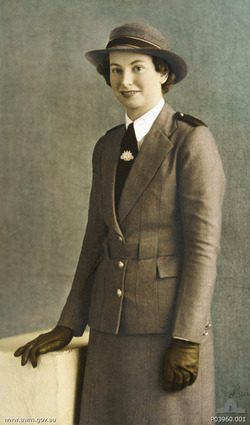
“One day President Roosevelt told me that he was asking publicly for suggestions about what the war should be called. I said at once, ‘The Unnecessary War.’ There never was a war more easy to stop than that which has just wrecked what was left of the world from the previous struggle.” —Winston Churchill
World War II grew out of World War I, and almost nobody tries to argue that World War I was just or glorious. By behaving more wisely, governments could have chosen not to launch World War I, or not to end World War I in a manner that had people predicting WWII on the spot. A war that could have been avoided is only a justifiable war if actually desirable, if actually preferable to peace. Of course what was still avoidable in 1939 might not be the same as what was avoidable in 1919 — a topic that, like hundreds of related topics, is covered in Leaving World War II Behind.
I want to touch here on over two decades of completely unnecessary actions, including a particular event in Philadelphia in 1918. If we went back an additional 2 decades to the proposals for peace discussed at the Hague in 1899 but never acted upon, our case would be that much stronger. The point is not to pretend that the crisis of 1939 didn’t happen, but to become aware that governments could behave much less recklessly now, just as they could have in the lead-up to WWII.
Jane Addams and her colleagues not only predicted in 1919 that a second world war would come, but also detailed what would need to be changed about the Treaty of Versailles and the League of Nations in order to avoid it — and launched a global peace organization to advocate toward that end. The famous 14 points promoted by President Woodrow Wilson were largely lost in the Treaty of Versailles, replaced by brutal punishment and humiliation for Germany. Addams warned that this would lead to another war.
The British economist John Maynard Keynes wrote in 1919 in The Economic Consequences of the Peace, “If we aim deliberately at the impoverishment of Central Europe, vengeance, I dare predict, will not limp.”
Thorstein Veblen, in a highly critical review of Keynes’ book, also predicted the Treaty of Versailles leading to more war, though he understood the basis of the treaty to be animosity toward the Soviet Union, against which, it should be noted, the United States and allied nations were fighting a war in 1919 that rarely shows up in U.S. history books. Veblen believed that reparations could have easily been taken from wealthy German property owners without imposing suffering on all of German society, but that the primary goal of those making the treaty had been to uphold property rights and to use Germany as a force against the communist Soviet Union.
Woodrow Wilson had promised “peace without victory,” but, in the treaty negotiations, given in to French and British vengeance toward Germany. Afterwards, he predicted World War II unless the United States joined the League of Nations.
Veblen thinks Wilson didn’t cave in and compromise at the treaty negotiations, but rather prioritized enmity toward the Soviet Union. I think the British did that, but that Wilson’s is a stranger story.
Wilson began by forcefully arguing against vindictive punishment of Germany, but was struck down by the so-called Spanish flu, was weakened severely, spoke as though delusional, and quickly agreed to abandon much of what he had promised the world. The Spanish flu (so-called because, although it probably came from U.S. military bases to the European war, Spain allowed its newspapers to write about unpleasant news, a forbidden practice in nations at war) had infected the White House.
The previous fall, on September 28, 1918, Philadelphia had held a massive pro-war parade that included flu-infected troops just back from the war. Doctors had warned against it, but politicians had announced that nothing would go wrong if everyone refrained from coughing, sneezing, and spitting. They didn’t. The flu spread. Wilson got it. He didn’t do what he might have done in Paris. It’s not inconceivable that WWII could have been avoided had a parade in Philadelphia been avoided.
That may sound crazy, but the parade in Philadelphia was just one stupid thing in an ocean of stupid things that didn’t have to be done. Nobody could have predicted World War II as a result of that parade, but such a prediction was possible and in fact made about many other of the unnecessary and foolish actions in the years between the wars.
Ferdinand Foch, a Frenchman, was Supreme Allied Commander. He was very disappointed with the Treaty of Versailles. “This is not peace,” he supposedly exclaimed. “It is an armistice for 20 years.” World War II began 20 years and 65 days later. Foch’s concern was not that Germany was punished too severely. Foch wanted Germany’s territory limited on the west by the Rhine River.
With widespread agreement that all governments would arm and prepare for more wars, predicting that Germany would be embittered by too much punishment or that too little punishment could allow Germany to launch a new attack were both safe predictions. With the ideas of prosperity without armament, the rule of law without violence, and humanity without tribalism still so marginal, Foch’s prediction made as much sense as Jane Addams’.
After WWII, Winston Churchill said, “Last time I saw it all coming and I cried aloud to my own fellow-countrymen and to the world, but no one paid any attention. . . .” Churchill meant that more armaments, more show of force, more threats and provocations could have prevented WWII, and that the same would prevent war with the Soviet Union. Churchill also put it this way:
“President Roosevelt one day asked what this War should be called. My answer was, ‘The Unnecessary War.’ If the United States had taken an active part in the League of Nations, and if the League of Nations had been prepared to use concerted force, even had it only been European force, to prevent the re-armament of Germany, there was no need for further serious bloodshed.”
Churchill goes on to describe not so much a stable peaceful world, as a delicate and increasingly dangerous imperial balance. There is no way to know that he’s mistaken. There was great opposition to Nazism in Germany, and some shift in history — whether a greater understanding of the tools of nonviolent action, or a more Churchillian militaristic resolve, or an assassination or coup (there were a number of failed plots) — might have defeated it.
But the point here is not that the world might have gotten lucky. Rather, the world acted foolishly, both by the standards of the time, and even more so by today’s. The Marshall Plan following WWII, for all its deep flaws, was an effort not to repeat the stupid way in which WWI had been ended. People were too much aware immediately after WWII of how they had created it after WWI.
The Treaty of Versailles was only one thing among many that did not have to happen. The people of Germany did not have to allow the rise of Nazism. Nations and businesses around the world did not have to fund and encourage the rise of Nazism. Scientists and governments did not have to inspire the Nazi ideology. Governments did not have to prefer armaments to the rule of law, and did not have to wink at German outrages while encouraging a German attack on the Soviet Union. A major change to any one of these factors would have prevented WWII in Europe.
— David Swanson, World Beyond War, Without A Super Spreader Event 102 Years Ago Today, WWII Might Not Have Happened, September 28, 2020
Bruce Gerencser, 66, lives in rural Northwest Ohio with his wife of 45 years. He and his wife have six grown children and thirteen grandchildren. Bruce pastored Evangelical churches for twenty-five years in Ohio, Texas, and Michigan. Bruce left the ministry in 2005, and in 2008 he left Christianity. Bruce is now a humanist and an atheist.
Connect with me on social media:
Your comments are welcome and appreciated. All first-time comments are moderated. Please read the commenting rules before commenting.
You can email Bruce via the Contact Form.


